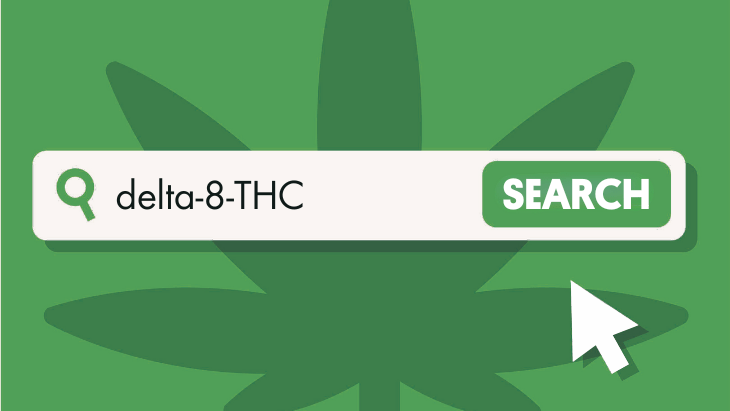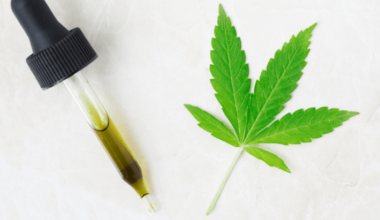
Adults are twice as likely to consume unregulated delta-8 THC products in jurisdictions where cannabis is criminally prohibited, according to data published in the American Journal of Preventive Medicine.
Investigators affiliated with Stanford University and the University of California at San Diego assessed delta-8-THC use patterns in a nationally representative cohort of 1,500+ adults.
Consistent with prior studies, they reported that delta-8 THC consumption is far more prevalent in jurisdictions without regulated adult-use cannabis markets.
Specifically, only 5.5 percent of adults in legal states report consuming delta-8 products versus 11 percent of respondents in jurisdictions where cannabis use is prohibited.
“The numbers in this study confirm a pattern we have seen before,” the study’s senior author said. “When safer, regulated access to marijuana is unavailable, people become interested in products that are available, even if they’re riskier. Providing legal access to cannabis that meets safety standards and disallowing understudied and poorly regulated products like delta-8 THC could be one way to prioritize public health in our cannabis policies.”
Separate data published last year in the Journal of Medical Toxicology reported far higher rates of poison control incidents involving the use of delta-8 products in states where licensed marijuana sales are prohibited. People who live in states where cannabis is illegal are nearly twice as likely to perform online searches for delta-8 THC products.
Commenting on the data, NORML’s Deputy Director Paul Armentano said: “Predictably, there exists far less demand for these unregulated intoxicating products in environments where whole-plant cannabis is legally regulated and available. Once again, the lesson is clear: Legalizing and regulating adult-use marijuana markets is preferable to prohibiting them. Placing marijuana products behind the counter keeps cannabis out of the hands of young people and it reduces the public’s appetite for these unregulated novel intoxicants.”
Although delta-8 THC occurs organically in the cannabis plant, it is typically only produced in nominal quantities. By contrast, the elevated quantities of delta-8 THC found in commercially available products are typically the result of a chemical synthesis during which manufacturers convert hemp-derived CBD to delta-8 THC. Manufacturers engaged in synthesizing delta-8 THC are not regulated and sometimes use potentially dangerous household products to facilitate this process. Lab analyses of unregulated delta-8 products have consistently found them to contain lower levels of the compound then advertised on the products’ labels. Some products have also been found to possess heavy metal contaminants and unlabeled cutting agents.
NORML and other groups have urged the FDA to establish regulatory guidelines governing the production, testing, labeling, and marketing of hemp-derived cannabinoid products. In 2021, NORML issued a report on delta-8-THC and other novel, synthetically derived cannabinoids that cautioned consumers to avoid these unregulated products because they are untested and may contain impurities.
The full text of the study, “US state marijuana and delta-8-tetrahydrocannabinol laws and delta-8-tetrahydrocannabinol use,” appears in the American Journal of Preventive Medicine. Additional information is available from the NORML Fact Sheet, “NORML’s Guide to Delta-8 THC and Other Novel Cannabinoids.”
Related
Medical Disclaimer:
The information provided in these blog posts is intended for general informational and educational purposes only. It is not a substitute for professional medical advice, diagnosis, or treatment. Always seek the advice of your physician or other qualified healthcare provider with any questions you may have regarding a medical condition. The use of any information provided in these blog posts is solely at your own risk. The authors and the website do not recommend or endorse any specific products, treatments, or procedures mentioned. Reliance on any information in these blog posts is solely at your own discretion.






